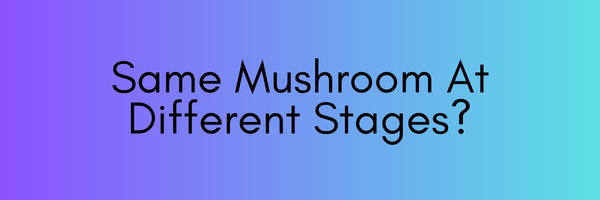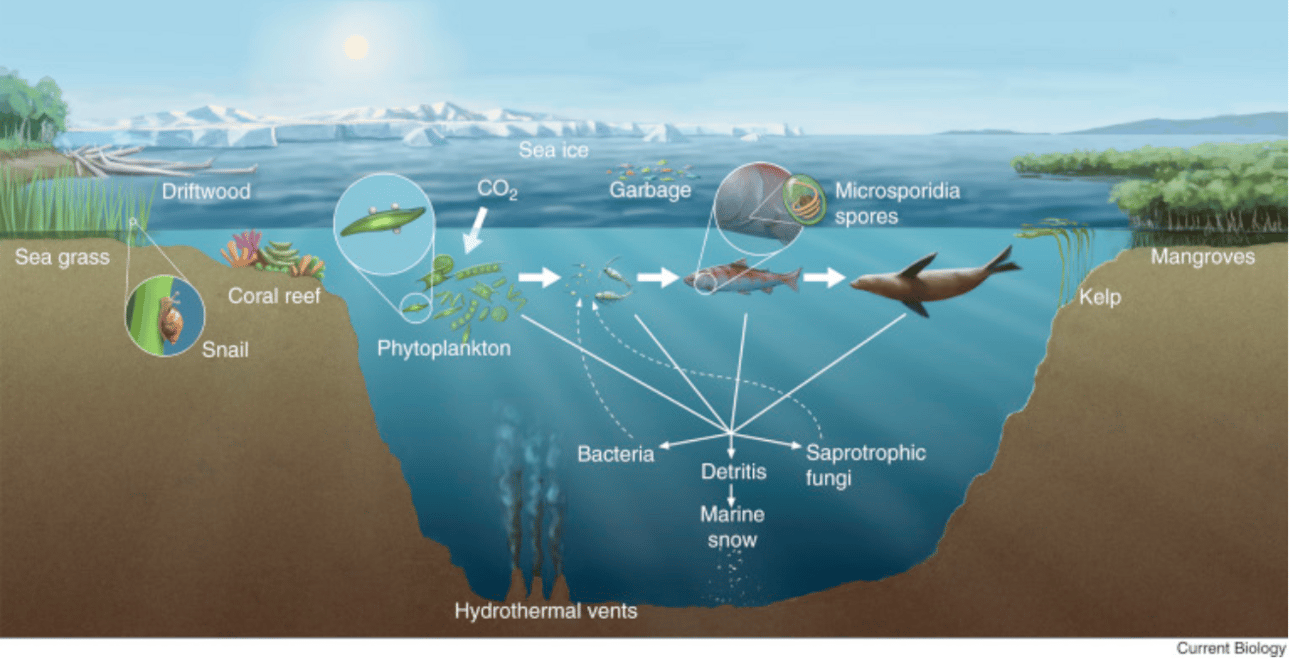
Mushroom Musings: Unveiling the Mysteries of Agaricus Bisporus and Exploring Marine Fungi
A bit of what is in today’s edition:
🍄 Delve into the mystery of why Agaricus bisporus became the dominant mushroom in the American diet
🍄 Explore the untapped potential of marine fungi
🍄 Black Sage Botanicals updates and expands course on Amanita Muscaria
🍄 Stay ahead of the curve with Mycroboost's innovative products

Did you know that Criminis, Buttons, and Portobellos are all the same mushroom in different phases of their growth cycle?

And for that matter, did you know that Chipotle peppers are just dried and smoked Jalapeños?
So many food industry rabbit holes, so little time.
Whatever you do, just don't invoke the wrath of the portabello mafia.
The real question is why was the Agaricus bisporus the singular mushroom to edge out the hundreds of other infinitely preferable edible varieties for integration into the American diet over the last century?
Why couldn't Lion's Mane or Chanterelles or literally ANY OTHER EDIBLE MUSHROOM have been the one that we grew up with?
A common refrain I hear among mycophiles - myself included - is that for most of our lives, we didn't know anything about the vast fungi kingdom beyond our exposure to Button mushrooms as a pizza topping (one that's typically peeled off and discarded) or as a less than desirable addition to the salad bar in the dining room at our grandparent's retirement home.

The answer to why it was the Agaricus bisporus mushroom that superseded much worthier contenders for mainstream cultural adoption in the United States during the 20th century certainly stems from its commercial viability and homogenization as a widely cultivated crop around the world.
First cultivated in France in 1707, the Agaricus bisporus cultivation was adopted in the United States during the first part of the 20th Century and continues to swell today. To put it into perspective, the market for this mushroom alone was valued at 4.7 billion dollars in 2023 and is expected to double by 2030.
But before you rush off to start your own Agaricus bisporus cultivation operation - consider that there are many, many other emerging use cases for mushrooms above and beyond mass producing them for the food industry.
Consider this almost completely untapped horizon: Marine Fungi

Marine fungi are almost entirely unknown to science despite the fact that they seem to be as omnipresent in aquatic environments as they are in the terrestrial world.

There isn't much known about marine fungi to date, other than the fact that they seem to be everywhere: In deep sea vents, around icebergs, in tide pools - basically everywhere.
Notice the inclusion of 'Saprotrophic fungi' in the image above - one of only a handful of depictions of this enigmatic and predominantly unexplored branch of the fungi kingdom.
And since I definitely didn't have to google what 'Saprotrophic' means, you won't have to either:
A Saprotroph takes in its nutrients in the form of dead and decaying matter. Boom, remember that if you're ever on Jeopardy.
Alright, that's probably enough mushroom science for one biweekly newsletter.

Shoutout to Mycopreneur sponsor Mycroboost - I promise you that as soon as there's a commercial market for marine fungi, the team at Mycroboost will be leading the pack with an expertly formulated and extremely potent sea mushroom extract gummies and capsules, etc. This is me rocking their Lion's Mane & Cordyceps softgels last year in Venice. I keep Mycroboost functional mushroom products on deck throughout all of my travels to stay on top of my A game.

Thanks for tapping in folks, I hope reading this was a worthwhile use of your time.

Our friend, Ash from Black Sage Botanicals, is running her acclaimed Amanita Muscaria class all through February. Ash is incredibly dialed in on this topic, and it would behoove all of us in the 'Amanita curious' crowd to tap in with her. Let's do another podcast sometime Ash!

Today's Mycopreneur Podcast episode features Rhana Hashemi of Know Drugs.
As a former public school teacher at a supposedly progressive school that had absolutely no drug education program to speak of, bearing witness to Rhana's pioneering work to usher in a new paradigm of harm reduction-focused, data-driven, and trauma-informed drug education for the youth of the world is so inspiring.
Tap in and let us know you heard it!
Thank you for reading the Mycopreneur Newsletter!
If you learned something new here today, consider forwarding us to a friend - because mushrooms require an ecosystem to grow, and so do mycopreneurs.

(Feel free to share the Newsletter using these convenient Social Media options at the top of the newsletter!)
Subscribe to stay current on everything Mushroom
Stay tuned for more updates in the mushroom industry as we unravel the latest innovations and surprises—because the mycelium world never sleeps!